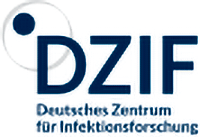31.01.2024
Prof. Hörauf Interview with the German Foundation for World Population On NTDs
January 30th is World NTD Day, the day of neglected tropical diseases!
Neglected Tropical Diseases (NTDs) is a collective term for various diseases, which the World Health Organization (WHO) currently estimates to be 21 in total. They can be caused by viruses, bacteria, parasites or fungi. Millions of people are affected worldwide, especially in economically weaker countries in the so-called Global South. Poor hygiene and health conditions mean that an estimated one billion people live with the risk of contracting NTDs. Prof. Achim Hörauf is Professor of Parasitology at the University of Bonn and an expert on NTDs. In this interview, he talks about the current state of research and the impact of climate change on the spread of NTDs.
How relevant is the neglect that gives the day its name today?
Achim Hörauf: In my view, this has become more topical again. NTDs have been and are being neglected again, especially due to the coronavirus pandemic. One example: due to the lockdown, local control in the communities, such as the distribution of medication, had been suspended. This then set us back two to four years, if a year had been suspended; and also results in patient fatigue with regard to treatment. In addition, the priorities in research have changed due to Corona, even though many millions of people worldwide live with disabilities and restrictions due to NTDs; and leprosy sufferers even suffer from mutilations. The WHO has just designated noma as the 21st NTD. This is a terrible disease of the oral cavity caused by malnutrition. NTDs are always the first to be neglected due to a lack of advocacy. After Corona, there was already significantly less funding from the USA, and the UK even pulled out completely. And in Germany, too, the BMZ (Federal Ministry for Economic Cooperation and Development) has had to accept significant restrictions.
World NTD Day on January 30 draws attention to neglected tropical diseases. More than one billion people worldwide are at risk of becoming incapacitated, blind, disfigured or dying as a result of these diseases. River blindness, schistosomiasis, dengue fever, sleeping sickness and leprosy are just a few well-known examples of this diverse group of diseases. Source: German Center for Infection Research (DZIF)
Read full interview available in German on DSW website: access link



